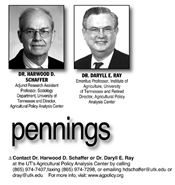|
Balancing Privacy And Need-To-Know During The COVID-19 Crisis

As we write this column, at least 112,000 people in the US have died from the coronavirus (COVID-19) since the outbreak began earlier this year. In recent months we have seen smaller clusters of COVID-19 deaths among retail grocery sellers with much larger clusters in meat packing plants, some of which have been closed for varying periods of time.
When asked about these events, companies have often cited HIPAA (Health Insurance Portability and Accountability Act) regulations which, among other things, protects the privacy of patient health records. In some cases, companies have refused to allow local health departments to disaggregate the company’s records from the community at large.
Those responses have often left workers in the dark as to whether or not they have been exposed to the coronavirus forcing individuals to make health care decisions without access to the information they need to plan out a responsible course of action.
We understand the importance of HIPAA in protecting the health privacy of residents of the US. It is important for a wide variety of issues including cancer, heart disease, and cosmetic surgeries. As a result, we understand the reluctance of packing and food retailers to release any information that might inadvertently allow others to identify a person who has been identified as having an active case of the disease. We also understand health departments who have not seen a disease of this severity in the lifetime of those who are making the decisions.
On the other hand, the coronavirus is not like an elective surgery, a rash, or a non-communicable disease where there is little or no potential impact on others.
At the same time, HIPAA does not cover all situations. The cause of death, where known, is included on death certificates.
The coronavirus is an infectious agent where not knowing that the person who is or was next to them put others at risk. The lack of information about a diagnosis of COVID-19 increases the risk of spreading the disease. Non-infected persons are put at a higher risk because they lack information that might cause them to take additional protective actions.
We believe that individuals with the coronavirus need not be publicly identified. We need to distinguish between those who are in the phase where they test positive and they are infectious and those whose test is positive, but they are not. If there is a risk of the spread of the disease, the infected person should be required to self-isolate for the required time.
All companies, whether they are in the meat packing industry, the retail grocery sector, or any other sector should be required to release the numbers in a way that they are available to the public while protecting other workers and those who come into contact with them on a regular basis. With the proper information, workers and customers may decide to take more stringent measures to protect themselves from the disease.
To make this all work we need a robust process for contact tracing; we assume that those who have the disease are willing to provide a full account of their activities during the infections period. In allowing for contract tracing, a certain amount of anonymity is sacrificed, but who wants to put their friends and co-workers at risk?
In the end, the more information we have about the disease that has caused this pandemic and its spread, the better we can make responsible personal decisions in protection of our health. ∆
DR. HARWOOD D. SCHAFFER: Adjunct Research Assistant Professor, Sociology Department, University of Tennessee and Director, Agricultural Policy Analysis Center
DR. DARYLL E. RAY: Emeritus Professor, Institute of Agriculture, University of Tennessee and Retired Director, Agricultural Policy Analysis Center
|
|